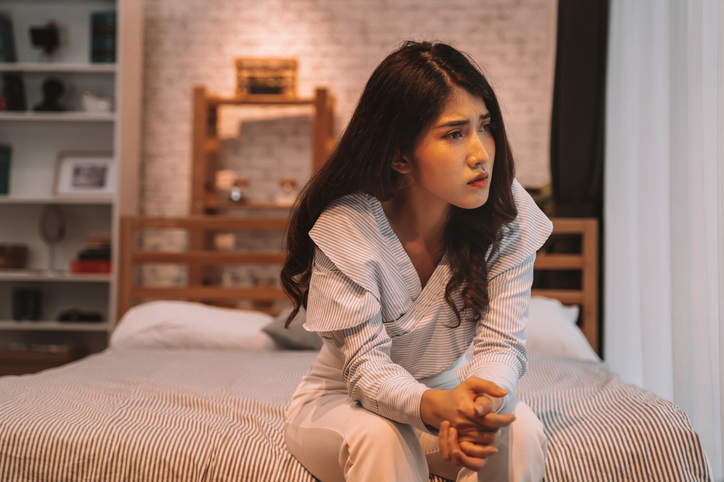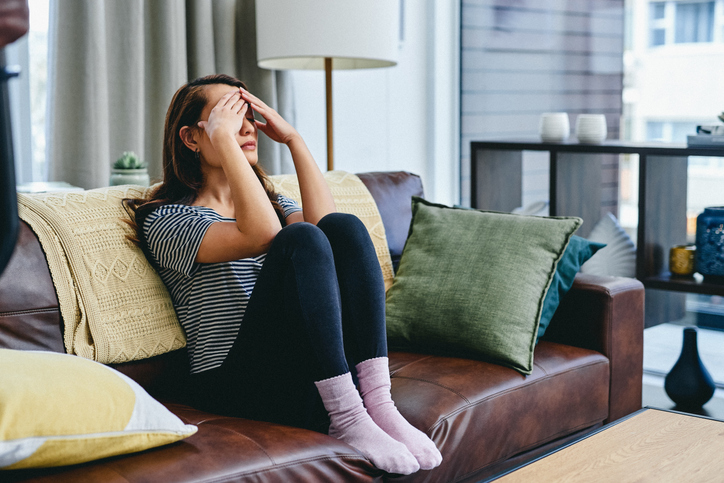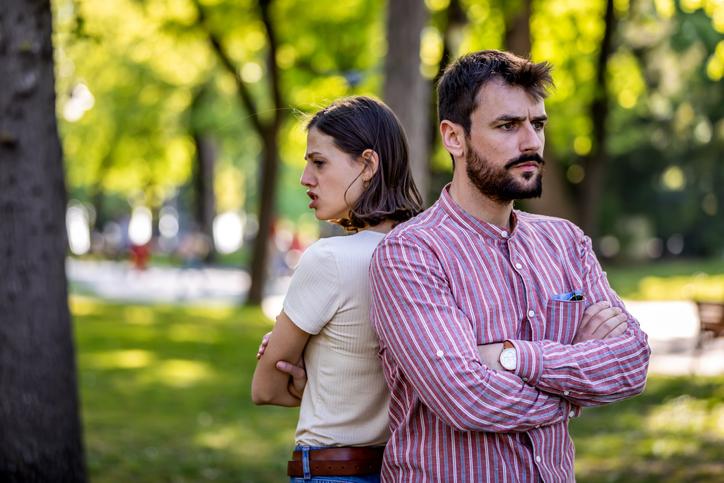When children don’t feel safe, this affects their development and mental health. They might grow up to feel depressed, anxious, or they could struggle to have healthy relationships with others as adults. Here are 15 lasting effects they have to deal with.
1. An insecure attachment style

A lack of emotional security during childhood can result in children not feeling loved, which can cause them to develop an insecure attachment style, per PsychCentral. This affects all areas of your life, and includes behaviors such as poor emotional regulation and not dealing well with conflict.
2. Low or no emotional intelligence

Since children learn from their primary caregivers, if they’re not getting emotional stability, this can hamper their development. For example, if parents don’t display emotional intelligence, such as by acknowledging and validating their children’s feelings and showing empathy, this can cause their children to grow up feeling like they don’t know how to react to their, or other people’s emotions.
3. Perfectionism

Some children who don’t feel safe in their environment might become perfectionists as adults who are tough on themselves. They could be modeling how their parents were critical of them, which caused them to feel like they weren’t good enough. They learned from a young age to jump through hoops to get other people’s approval.
4. Difficulty dealing with stress

When children grow up in an unpredictable environment where they’re always on guard, this swings a punch at their body’s stress response, affecting how well they deal with stress. Small amounts of it could cause them to have a more dramatic response to it than is normal, which negatively impacts their mental health.
5. A crippling fear of rejection

If someone feels like they’re criticized for everything they do during childhood, despite trying hard to please others, this can damage their sense of self-worth and self-esteem. They might fear being criticized or judged by others, or have a phobia of rejection. It’s just too much to handle.
6. Difficulty trusting people

It’s challenging to trust others if your primary caregivers kept breaking your trust, such as if they neglected or abused you. This makes it hard to open your heart to others and not feel highly suspicious of their motives.
7. Often feeling panicked

It makes sense that feeling unsafe can cause you to have panic attacks or develop an anxiety disorder. This is because you grew up having to be hyper vigilant in your stressful surroundings. Common symptoms of panic attacks include a racing heart, sweaty palms, and feelings of doom.
8. Censoring themselves

People who grew up with parents who never embraced who they were or gave them the confidence to feel comfortable in their skin might find that they keep censoring their truth as adults. This can be because they fear rejection. They don’t feel safe to show the world who they really are.
9. Choosing toxic romantic partners

Unsafe childhood environments are unpredictable. This high-stress environment becomes the norm for children in it, so they might try to chase chaos and drama in their lives as adults. This is why they’ll reach out to toxic, unhealthy partners, resulting in more misery and stress.
10. Hyper-independence

Since they never received support from their parents growing up, children who lived in an unsafe environment might try to be as self-sufficient as possible. They feel they can only depend on themselves ’cause other people let them down. So, they struggle to ask others for help, even when they’re carrying a ton of stress on their shoulders, because they fear being judged or perceived as weak.
11. Difficulty relaxing

If stress is always around, a child might struggle to relax and sleep. This could be carried into adulthood and can become crippling if not dealt with. If you can’t unwind and decompress, it’s only a matter of time before it becomes overwhelming and burnout kicks in. Some people might even struggle with sleep disorders, such as insomnia.
12. A higher risk of health conditions

Not feeling safe or loved causes huge amounts of stress for children, which can lead to a higher risk of health conditions as an adult, such as frequent infections from having a weakened immune system and cardiovascular disease.
13. Unhealthy coping strategies

Children with a traumatic background might struggle to know how to deal with high-stress situations in a healthy way. This could result in toxic coping strategies in adulthood, such as alcoholism, substance abuse, and self-harm.
14. Withdrawing from others

It’s difficult for people from chaotic families to trust others, and they might also struggle with emotional intimacy. This can result in them withdrawing from others or isolating themselves socially because they feel safer when they’re alone.
15. Feeling misplaced guilt

It’s common for children who have experienced abuse or other trauma to develop feelings of guilt they carry into adulthood. This is because the trauma negatively impacts their self-esteem and self-image. They might blame themselves for what happened, even though they were the victims in the situation.
Enjoy this piece? Give it a like and follow PsychLove on MSN for more!




